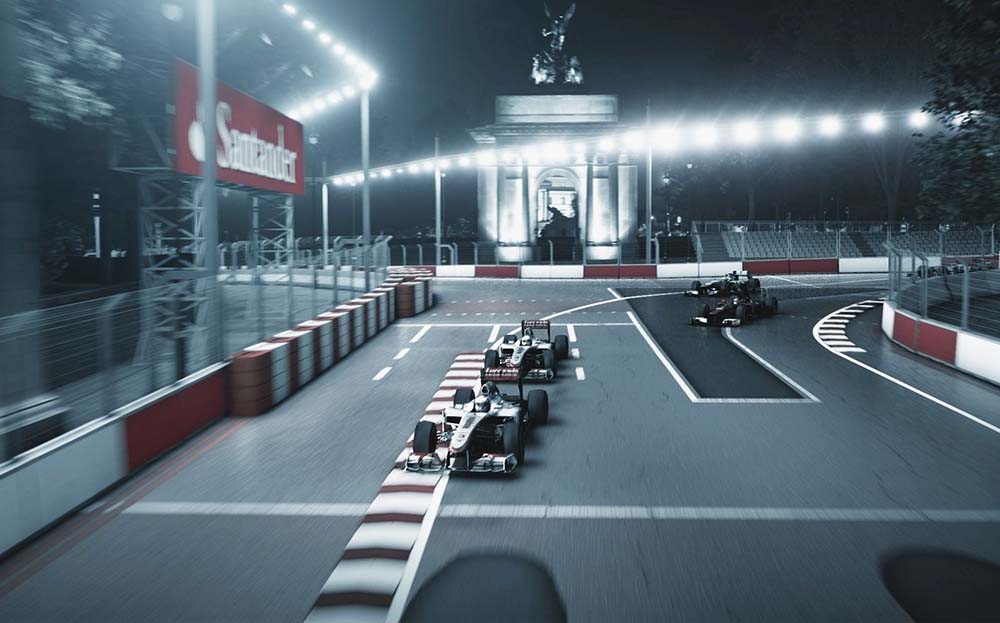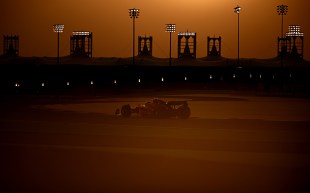News: Councils to be allowed to close roads for motor racing
And they're off ‒ down the high street

FORMULA ONE could soon be coming to London, or any other British city who bids for it, following an announcement by the government that councils will be able to close roads for motor racing.
At present, the Road Traffic Act requires that highways have speed limits and that the vehicles using them are road legal. Race organisers can apply to parliament to have the Act suspended for a period but this can take as long as 18 months to enact and is expensive.
The new plans, which could become law by next March, will allow councils to grant permission for road races in a far shorter time and at much lower cost to organisers.
The proposed legislation would allow small-scale meetings such as hill climbs, speed trials and rallies but campaigners for the London Grand Prix will be hoping it will be extended to include larger race meetings.
F1 supremo Bernie Ecclestone said the shake-up was a “step in the right direction” – but questioned whether a street race in the capital would be financially viable.
“The news is good, but I don’t know whether you’d have street racing because it’s not cheap to put on something that’s safe.”
The motor sport industry believes there is demand to hold up to 20 significant motor sport events on British roads each year, earning the local communities that host them around £40m over five years.
David Cameron, the prime minister, announced the plans when he opened an £8m facility at the Oxfordshire headquarters of the Williams F1 team.
He said: “We think this will be of real value to British motor sport. More races, more events, more money coming into the country and more success for the UK’s extraordinary motor racing industry.”
F1 World Champions including Nigel Mansell and Jackie Stewart, and racing legend Stirling Moss welcomed the plans.
Nigel Mansell said: “This would be a great move forward for the sport and would bring visitors and pride to parts of the country that wish to stage such events.”
Local councils were equally positive. Stuart Bray, leader of Hinckley and Bosworth council which supports the Rally of Midlands, said: “Being able to host closed rally events could bring significant economic benefit to the area. We would be one of the first places in the country to utilise this legislation.”
Ralph Hosier, live action director of Coventry Festival of Motoring which uses the city’s ring road to stage a non-competitive motor sport event, said the new legislation would streamline the application process for competitive road-race meetings and significantly reduce its cost.
“We need to work out whether a motor race on the ring road would be feasible and safe but assuming it is, we’ll apply to hold one, possibly as early as next May.”
The banning of motor racing on public roads dates back to 1925 when Oxford student Francis Giveen raced the great British driver Raymond Mays’ Bugatti at the Kop Hill Climb in Buckinghamshire. He crashed and broke a spectator’s leg. Following a series of much more serious racing accidents around the country it was the last straw for the authorities who banned road racing.
The Kop Hill Climb relaunched in 2009 and has since become popular as a non-competitive hill climb, attracting non-racing participants and celebrities including Chris Evans and Jay Kay.
David Banes, one of the organisers of the event which takes place in September, welcomed the government’s plans but said the secret of Kop Hill’s success (it attracts 15,000 people) was its being non-competitive.
“As a result, it’s more like a village fete and attracts families rather than petrolheads,” he said.
Search for and buy a used car on driving.co.uk




